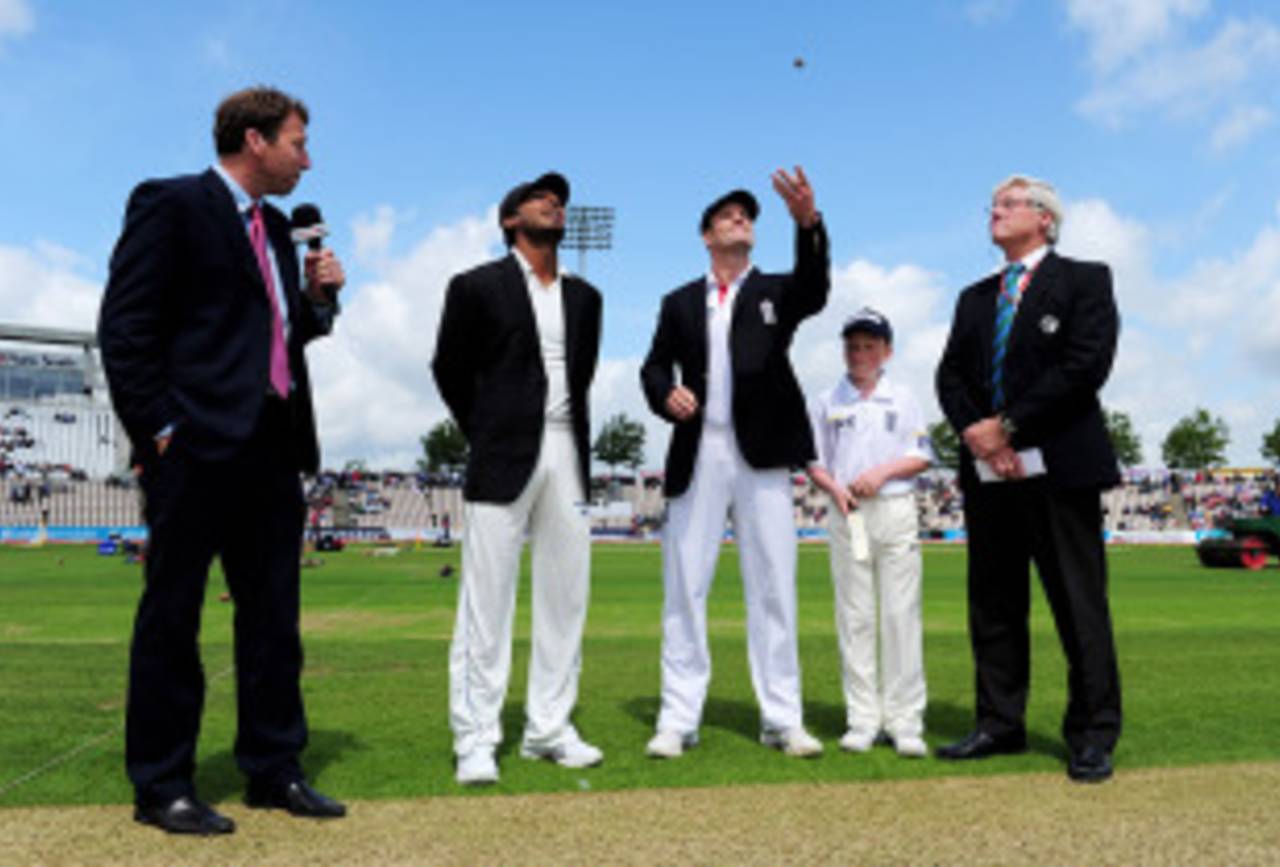One thing recent and current debates about the future of cricket have done is force its fans to reckon with the game's crucial differences from the rest of the sporting world. And one way in which that can be done is to inspect a little closely our notions of the ordinary or the excellent in the game. Their differences from traditional sporting standards can be revelatory. Here is one of my personal favourites.
It is accepted wisdom in Test cricket that a good pitch is one that wears with time; that a good cricket encounter will favour pace first, and then spin later; that batting will get progressively more difficult as a game progresses; that batting in the last innings will be the ultimate challenge for a batsman; that fourth-innings targets will always be difficult, and so on. All of these notions roughly add up to the claim that a good cricket match is skewed towards a side batting first and indeed should be so. And yet, how is that advantage - seemingly decisive if the statistics of the game are consulted - to be awarded?
Not on the field of play, not by initiatives seized and lost, but the toss of a coin. A fair one, but a coin nevertheless. That's right, ladies and gentlemen, our notions of cricket quality are tied up with pure chance. Our very understanding of what constitutes a good contest is one in which the contest is tilted, thanks to the fortuitous twists of fate, toward one opponent. None of this is news to a cricket fan and that's perhaps the most astounding thing of all.
It is hard to imagine a similar tipping of the scales in any other sport. Would football tolerate a toss of a coin making one side play with only 10 players? In swimming or Formula One could chance decide pole position? Would every boxing match begin with the tossing of a coin which would permit one of the two boxers a chance to land a couple of hard rights as the bout began? I don't think so.
The toss is somehow so deeply ingrained in our cricketing sensibilities that we don't see it as part of an eminently unfair arrangement, one which awards a statistically significant advantage to a sporting participant purely on the basis of unearned chance.
What could replace this? Nothing, it seems. Alternate awarding of tosses would not negate the variation present in pitches and conditions ("How unfair that Australia were allowed to bat first in Brisbane, and then given the chance to bowl first on a cloudy day in Sydney"). Should we seed teams and let the stronger teams bat first?
That seems ludicrous. Should weaker teams be allowed to bat first as a kind of handicap for the stronger? Would this be based on rankings? Can pitches be rendered uniform all over the world so that winning the toss is not so decisive? But how? And do we really want uniformity in pitches and conditions?
In attempting any of the proposed solutions, we run into, time and again, other aspects of cricket, which incorporate as much of a less-than-easily-captured ineffable quality as the mystery of the toss and our notion of a good match. And these qualities are what perhaps tie us so deeply to the game, and allow it to retain a unique place in our sensibilities.
Cricket, and especially Test cricket, is a sporting singularity; and these come along quite rarely in any field of human endeavour. When we get ready to sort out and organise the world of cricket in response to notions imported from the organised, sensible world, we would do well to pay attention to what we stand to lose in an urge to move forward with too much haste, too little care.
Samir Chopra lives in Brooklyn and teaches Philosophy at the City University of New York. He tweets here
